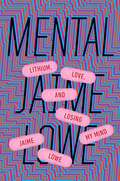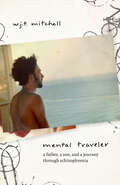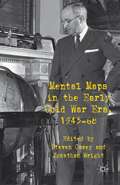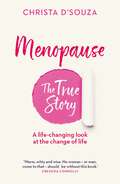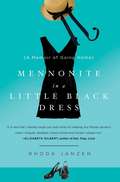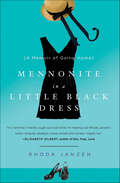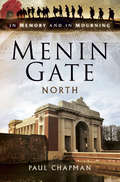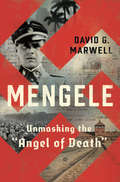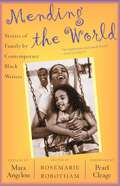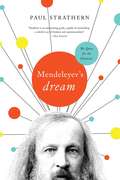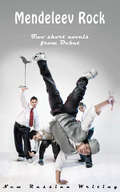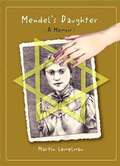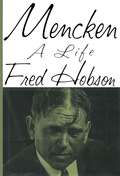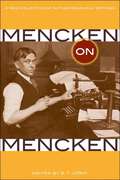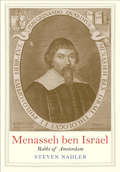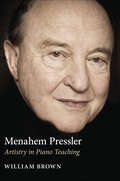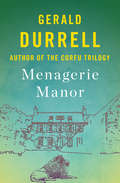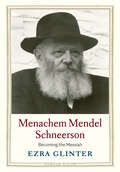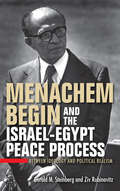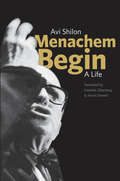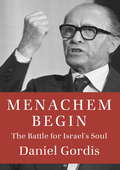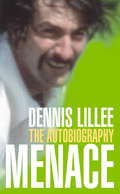- Table View
- List View
Mental: Lithium, Love, and Losing My Mind
by Jaime LoweA riveting memoir and a fascinating investigation of the history, uses, and controversies behind lithium, an essential medication for millions of people struggling with bipolar disorder. It began in Los Angeles in 1993, when Jaime Lowe was just sixteen. She stopped sleeping and eating, and began to hallucinate—demonically cackling Muppets, faces lurking in windows, Michael Jackson delivering messages from the Neverland Underground. Lowe wrote manifestos and math equations in her diary, and drew infographics on her bedroom wall. Eventually, hospitalized and diagnosed as bipolar, she was prescribed a medication that came in the form of three pink pills—lithium.In Mental, Lowe shares and investigates her story of episodic madness, as well as the stability she found while on lithium. She interviews scientists, psychiatrists, and patients to examine how effective lithium really is and how its side effects can be dangerous for long-term users—including Lowe, who after twenty years on the medication suffers from severe kidney damage. Mental is eye-opening and powerful, tackling an illness and drug that has touched millions of lives and yet remains shrouded in social stigma. Now, while she adjusts to a new drug, her pursuit of a stable life continues as does her curiosity about the history and science of the mysterious element that shaped the way she sees the world and allowed her decades of sanity. Lowe travels to the Bolivian salt flats that hold more than half of the world’s lithium reserves, rural America where lithium is mined for batteries, and tolithium spas that are still touted as a tonic to cure all ills. With unflinching honesty and humor, Lowe allows a clear-eyed view into her life, and an arresting inquiry into one of mankind’s oldest medical mysteries.
Mental Traveler: A Father, a Son, and a Journey through Schizophrenia
by W. J. MitchellHow does a parent make sense of a child’s severe mental illness? How does a father meet the daily challenges of caring for his gifted but delusional son, while seeking to overcome the stigma of madness and the limits of psychiatry? W. J. T. Mitchell’s memoir tells the story—at once representative and unique—of one family’s encounter with mental illness and bears witness to the life of the talented young man who was his son. Gabriel Mitchell was diagnosed with schizophrenia at age twenty-one and died by suicide eighteen years later. He left behind a remarkable archive of creative work and a father determined to honor his son’s attempts to conquer his own illness. Before his death, Gabe had been working on a film that would show madness from inside and out, as media stereotype and spectacle, symptom and stigma, malady and minority status, disability and gateway to insight. He was convinced that madness is an extreme form of subjective experience that we all endure at some point in our lives, whether in moments of ecstasy or melancholy, or in the enduring trauma of a broken heart. Gabe’s declared ambition was to transform schizophrenia from a death sentence to a learning experience, and madness from a curse to a critical perspective. Shot through with love and pain, Mental Traveler shows how Gabe drew his father into his quest for enlightenment within madness. It is a book that will touch anyone struggling to cope with mental illness, and especially for parents and caregivers of those caught in its grasp.
Mental Maps in the Early Cold War Era, 1945-1968
by Jonathan Wright Steven CaseyThe early Cold War was a period of dramatic change. New superpowers emerged, the European powers were eclipsed, colonial empires tottered. Political leaders everywhere had to make immense adjustments. This volume explores their hopes and fears, their sense of their place in the world and of the constraints under which they laboured.
Menopause: the True Story
by Christa D'Souza'The final step to equality has to be turning the menopause into a topic we can happily discuss, and even celebrate. In these pages, Christa D'Souza puts us firmly on that path.' - MARIELLA FROSTRUP'Been there... survived that... but how I wish I'd had this menopause tour guide to get me through. Brilliant and beautifully written.' - CHRISTIANE AMANPOUR'Warm, witty and wise. No woman - or man, come to that - should be without this book.' - CRESSIDA CONNOLLYThere has never been a better time to be a menopausal woman. Technology is such that 60 really is the new 40 (or even 35). But, for Christa D'Souza, some nagging questions remain... What is the point of us now that we are officially biologically irrelevant? Are hormones safe, even if you've had cancer? Is there a cut-off point for plaits? In this fabulously confessional romp through the menopause, D'Souza tells us what it was like for her, and what it will be like for you. She meets a bunch of menopausal nuns in San Francisco, goes hunter-gathering with the Hadza tribe in Tanzania, interviews experts around the world to get the latest science... and discovers along the way some surprising silver linings to this key milestone of maturity. Menopause: the memoir is a treat of a book - liberating, empowering and unexpectedly moving in its truth-telling.
Mennonite in a Little Black Dress: A Memoir of Going Home
by Rhoda JanzenNot long after Rhoda Janzen turned forty, her world turned upside down. It was bad enough that her husband of fifteen years left her for Bob, a guy he met on Gay.com, but that same week a car accident left her injured. Needing a place to rest and pick up the pieces of her life, Rhoda packed her bags, crossed the country, and returned to her quirky Mennonite family's home, where she was welcomed back with open arms and offbeat advice. (Rhoda's good-natured mother suggested she get over her heartbreak by dating her first cousin - he owned a tractor, see.) Written with wry humor and huge personality - and tackling faith, love, family, and aging - Mennonite in a Little Black Dress is an immensely moving memoir of healing, certain to touch anyone who has ever had to look homeward in order to move ahead.
Mennonite in a Little Black Dress: A Memoir of Going Home
by Rhoda JanzenA hilarious and moving memoir—in the spirit of Anne Lamott and Nora Ephron—about a woman who returns home to her close-knit Mennonite family after a personal crisisNot long after Rhoda Janzen turned forty, her world turned upside down. It was bad enough that her brilliant husband of fifteen years left her for Bob, a guy he met on Gay.com, but that same week a car accident left her with serious injuries. What was a gal to do? Rhoda packed her bags and went home. This wasn't just any home, though. This was a Mennonite home. While Rhoda had long ventured out on her own spiritual path, the conservative community welcomed her back with open arms and offbeat advice. (Rhoda's good-natured mother suggested she date her first cousin—he owned a tractor, see.) It is in this safe place that Rhoda can come to terms with her failed marriage; her desire, as a young woman, to leave her sheltered world behind; and the choices that both freed and entrapped her.Written with wry humor and huge personality—and tackling faith, love, family, and aging—Mennonite in a Little Black Dress is an immensely moving memoir of healing, certain to touch anyone who has ever had to look homeward in order to move ahead.
Menin Gate North: In Memory and In Mourning (In Memory and in Mourning)
by Paul ChapmanThis is a comprehensive and highly emotive volume, borne of years of intensive research and many trips to the battlefields of the Great War. It seeks to humanize the Menin Gate Memorial (North), to offer the reader a chance to engage with the personal stories of the soldiers whose names have been chiseled there in stone. Poignant stories of camaraderie, tragic twists of fate and noble sacrifice have been collated in an attempt to bring home the reality of war and the true extent of its tragic cost. It is hoped that visitors to the battlefields, whether their relatives are listed within or not, will find their experience enriched by having access to this treasure trove of stories.
Mengele: Unmasking The Angel Of Death
by David G. MarwellA gripping biography of the infamous Nazi doctor, from a former Justice Department official tasked with uncovering his fate. Perhaps the most notorious war criminal of all time, Josef Mengele was the embodiment of bloodless efficiency and passionate devotion to a grotesque worldview. Aided by the role he has assumed in works of popular culture, Mengele has come to symbolize the Holocaust itself as well as the failure of justice that allowed countless Nazi murderers and their accomplices to escape justice. Whether as the demonic doctor who directed mass killings or the elusive fugitive who escaped capture, Mengele has loomed so large that even with conclusive proof, many refused to believe that he had died. As chief of investigative research at the Justice Department’s Office of Special Investigations in the 1980s, David G. Marwell worked on the Mengele case, interviewing his victims, visiting the scenes of his crimes, and ultimately holding his bones in his hands. Drawing on his own experience as well as new scholarship and sources, Marwell examines in scrupulous detail Mengele’s life and career. He chronicles Mengele’s university studies, which led to two PhDs and a promising career as a scientist; his wartime service both in frontline combat and at Auschwitz, where his “selections” sent innumerable innocents to their deaths and his “scientific” pursuits—including his studies of twins and eye color—traumatized or killed countless more; and his postwar flight from Europe and refuge in South America. Mengele describes the international search for the Nazi doctor in 1985 that ended in a cemetery in Sao Paulo, Brazil, and the dogged forensic investigation that produced overwhelming evidence that Mengele had died—but failed to convince those who, arguably, most wanted him dead. This is the riveting story of science without limits, escape without freedom, and resolution without justice.
Mending the World: Stories of Family by Contemporary Black Writers
by Rosemarie RobothamThe many facets of black family life have not always been fully visible in American literature. Black families have often been portrayed as chaotic, fractured, and emotionally devastated, and historians and sociologists are just beginning to acknowledge the resilience and strength of African American families through centuries of hardship. In Mending the World, a host of beloved writers celebrate the richness of black family life, revealing how deep, complicated, and joyous modern kinship can be. From Jamaica Kincaid's portrait of a young girl moving away from her mother to better know herself to Alice Walker's reflection on the joy and pain of her relationship with her own daughter; from Edwidge Danticat's fictional evocation of a young woman rocked by revelations about her parents to James McBride's elegy for his stepfather, this inspiring volume presents-through fiction, memoir, and poetry-a multi-layered and optimistic portrait of today's black America.
Mending
by Dorothy HsuMENDING is a diary of one widow's thoughts and emotions ... of the questions she asked and the answers she found ... of a faith that helped her accept a new life ... without fear ... without shame ... or bitterness.
Mendeleyev's Dream: The Quest For The Elements
by Paul StrathernThe wondrous and illuminating story of humankind's quest to discover the fundamentals of chemistry, culminating in Mendeleyev's dream of the Periodic Table. In 1869 Russian scientist Dmitri Mendeleyev was puzzling over a way to bring order to the fledgling science of chemistry. Wearied by the effort, he fell asleep at his desk. What he dreamt would fundamentally change the way we see the world. Framing this history is the life story of the nineteenth-century Russian scientist Dmitri Mendeleyev, who fell asleep at his desk and awoke after conceiving the periodic table in a dream-the template upon which modern chemistry is founded and the formulation of which marked chemistry's coming of age as a science. From ancient philosophy through medieval alchemy to the splitting of the atom, this is the true story of the birth of chemistry and the role of one man's dream. In this elegant, erudite, and entertaining book, Paul Strathern unravels the quixotic history of chemistry through the quest for the elements.
Mendeleev Rock
by Andrei Kuzechkin Pavel KostinThese two novels by Debut Prize finalists present typical provincial towns in central Russia and a gallery of modern-day types: radically minded youths, ruthless thugs, drunken intellectuals, the local elite, and failed fortune seekers. The heroes are yearning for faraway glamorous cities and trying to find their identities. They suffer through various weird misadventures, but for many readers their tales may be a survival guide. A vivid portrait of the younger generation in today's Russia: stunned by their first painful contacts with harsh reality. The authors will present the book at BEA 2011 in New York.
Mendel's Daughter: A Memoir
by Martin Lemelman Gusta LemelmanA graphic memoir, illustrated with black-and-white drawings and photography, follows the author's mother's dramatic escape from Nazi persecution, in a visual transcription of her childhood in 1930s Poland, her victimization under the Nazi regime, and struggles to survive.
Mencken: A Life
by Fred HobsonEver in control, H. L. Mencken contrived that future generations would see his life as he desired them to. He even wrote Happy Days, Newspaper Days, and other books to fit the pictures he wanted: first, the carefree Baltimore boy; then, the delighted, exuberant critic of American life.But he only told part of the truth. Over the past twenty-five years, vital collections of the writer's papers have become available, including his literary correspondence, a 2,100-page diary, equally long manuscripts about his literary and journalistic careers, and numerous accumulations of his personal correspondence. The letters and diaries of Mencken's intimates have been uncovered as well.Now Fred Hobson has used this newly accessible material to fashion the first truly comprehensive portrait of this most original of American originals.NOTE: This edition does not include photographs.
Mencken on Mencken: A New Collection of Autobiographical Writings
by H. L. Mencken S. T. Joshi"Mencken weighs 172 pounds, is 5 feet 10 inches in height and not beautiful. His chief amusement, after reading, is piano-playing, this he does very crudely. He takes no exercise except walking and is a moderate eater and drinker. He sometimes drinks as little as one bottle of beer a week, though this doesn't happen very often." So wrote H. L. Mencken about himself, in a brief sketch of his life penned in 1905.Perhaps America's foremost literary stylist and most mordant wit, Mencken's most engaging writing told about his own life and experiences. In Mencken on Mencken, veteran Mencken editor and scholar S. T. Joshi has assembled a hefty collection of the best of Mencken's autobiographical pieces that have not appeared previously in book form. These forty-four selections cover a wide variety of topics ranging from incidents from Mencken's everyday life to reflections on friends and colleagues to his careers as author, journalist, and editor, to his travels abroad. As a journalist in Baltimore, Mencken encountered many unusual characters: a professional mourner hired by a beer distiller, a wagon driver who slept through the great Baltimore fire of 1904, a confirmed bachelor who left town to avoid the clutches of a predatory widow. He provides accounts of literary figures he knew, such as Theodore Dreiser, and ruminations on his work at the Baltimore Sun and as editor for the magazines Smart Set and the American Mercury. In an essay titled "What I Believe," he eschews humor and writes straightforwardly of his longtime scorn for the idea of religion, and in his journalist mode he reflects on a half-century of attending political conventions, drawing on his vast inside knowledge to savage the corruption and incompetence of the political class. A superb travel writer, Mencken gives us a rollicking account of beer-drinking in Munich, astute observations of political unrest in Cuba, and carefully drawn scenes from a long tour he and his wife made of the Mediterranean in 1934.Joshi has thoroughly annotated the pieces and also compiled an extensive glossary of names and terms that Mencken mentions. Mencken on Mencken offers a fully rounded self-portrait of one of America's most colorful personalities and most extraordinary men of letters.
Menasseh ben Israel: Rabbi of Amsterdam (Jewish Lives)
by Steven NadlerAn illuminating biography of the great Amsterdam rabbi and celebrated popularizer of Judaism in the seventeenth century Menasseh ben Israel (1604–1657) was among the most accomplished and cosmopolitan rabbis of his time, and a pivotal intellectual figure in early modern Jewish history. He was one of the three rabbis of the “Portuguese Nation” in Amsterdam, a community that quickly earned renown worldwide for its mercantile and scholarly vitality. Born in Lisbon, Menasseh and his family were forcibly converted to Catholicism but suspected of insincerity in their new faith. To avoid the horrors of the Inquisition, they fled first to southwestern France, and then to Amsterdam, where they finally settled. Menasseh played an important role during the formative decades of one of the most vital Jewish communities of early modern Europe, and was influential through his extraordinary work as a printer and his efforts on behalf of the readmission of Jews to England. In this lively biography, Steven Nadler provides a fresh perspective on this seminal figure.
Menahem Pressler: Artistry in Piano Teaching
by William BrownAs soloist, master class teacher, and pianist of the world-renowned Beaux Arts Trio, Menahem Pressler can boast of four Grammy nominations, three honorary doctorates, more than 80 recordings, and lifetime achievement awards presented by France, Germany, and Israel. Former Pressler student William Brown traces the master's pianistic development through Rudiakov, Kestenberg, Vengerova, Casadesus, Petri, and Steuermann, blending techniques and traditions derived from Beethoven, Chopin, Liszt, and J. S. Bach. Brown presents Pressler's approach to performance and teaching, including technical exercises, principles of relaxation and total body involvement, and images to guide the pianist's creativity toward expressive interpretation. Insights from the author's own lessons, interviews with Pressler, and recollections of more than 100 Pressler students from the past 50 years are gathered in this text. Measure-by-measure lessons on 23 piano masterworks by, among others, Bach, Bartók, Debussy, and Ravel as well as transcriptions of Pressler's fingerings, hand redistributions, practicing guidelines, musical scores, and master class performances are included.
Menagerie Manor: A Zoo In My Luggage, The Whispering Land, And Menagerie Manor (The Zoo Memoirs #3)
by Gerald DurrellThe beloved naturist and author of My Family and Other Animals shares the pleasures and pitfalls of opening a zoo on the English Channel Island of Jersey. Spurred by his passion for animals and a lifelong dream, in the spring of 1959 Gerald Durrell opened the Jersey Zoo—now known as the Durrell Wildlife Park—on the grounds of an old manor house. The menagerie provided a safe habitat for rare and endangered species and exposed its human visitors to the wonders of nature. Dealing with escapee animals and overdrawn bank accounts, Durrell soon discovered that owning and operating a fledgling zoo was no easy task. But despite the setbacks, these charming, often hilarious stories make clear that, for Durrell, ensuring the park&’s success and helping the creatures he loved so dearly was worth any obstacle. This ebook features an illustrated biography of Gerald Durrell including rare photos from the author&’s estate.
Menachem Mendel Schneerson: Becoming the Messiah (Jewish Lives)
by Ezra GlinterThe life and thought of Menachem Mendel Schneerson, one of the most influential—and controversial—rabbis in modern Judaism &“Accessible, informed, and balanced. . . . The author manages to tread on fragile ground with aplomb. . . . An exceptional tool for understanding.&”—Kirkus Reviews (starred review) The Chabad-Lubavitch movement, one of the world&’s best-known Hasidic groups, is driven by the belief that we are on the verge of the messianic age. The man most recognized for the movement&’s success is the seventh and last Lubavitcher rebbe, Menachem Mendel Schneerson (1902–1994), believed by many of his followers to be the Messiah. While hope of redemption has sustained the Jewish people through exile and persecution, it has also upended Jewish society with its apocalyptic and anarchic tendencies. So it is not surprising that Schneerson&’s messianic fervor made him one of the most controversial rabbinic leaders of the twentieth century. How did he go from being an ordinary rabbi&’s son in the Russian Empire to achieving status as a mystical sage? How did he revitalize a centuries-old Hasidic movement, construct an outreach empire of unprecedented scope, and earn the admiration and condemnation of political, communal, and religious leaders in America and abroad? Ezra Glinter&’s deeply researched account is the first biography of Schneerson to combine a nonpartisan view of his life, work, and impact with an insider&’s understanding of the ideology that drove him and that continues to inspire the Chabad-Lubavitch movement today.
Menachem Begin and the Israel-Egypt Peace Process: Between Ideology and Political Realism (Perspectives on Israel Studies)
by Gerald M. Steinberg Ziv RubinovitzThis political biography sheds new light on the vital role played by the Israeli Prime Minister in establishing peaceful relations with Egypt.Focusing on the character and personality of Menachem Begin, Gerald Steinberg and Ziv Rubinovitz offer a new look into the peace negotiations between Israel and Egypt in the 1970s. Begin’s role as a peace negotiator has often been marginalized, but this sympathetic and critical portrait restores him to the center of the diplomatic process. Beginning with the events of 1967, Steinberg and Rubinovitz look at Begin’s statements on foreign policy, including relations with Egypt, and his role as Prime Minister and chief signer of the Israel-Egypt peace treaty. While Begin did not leave personal memoirs or diaries of the peace process, Steinberg and Rubinovitz have tapped into newly released Israeli archives and information housed at the Jimmy Carter Presidential Library and the Begin Heritage Center. The analysis illuminates the complexities that Menachem Begin faced in navigating between ideology and political realism in the negotiations towards a peace treaty that remains a unique diplomatic achievement.
Menachem Begin and the Israel-Egypt Peace Process: Between Ideology and Political Realism (Perspectives On Israel Studies)
by Gerald M. Steinberg Ziv RubinovitzThis political biography sheds new light on the vital role played by the Israeli Prime Minister in establishing peaceful relations with Egypt.Focusing on the character and personality of Menachem Begin, Gerald Steinberg and Ziv Rubinovitz offer a new look into the peace negotiations between Israel and Egypt in the 1970s. Begin’s role as a peace negotiator has often been marginalized, but this sympathetic and critical portrait restores him to the center of the diplomatic process. Beginning with the events of 1967, Steinberg and Rubinovitz look at Begin’s statements on foreign policy, including relations with Egypt, and his role as Prime Minister and chief signer of the Israel-Egypt peace treaty. While Begin did not leave personal memoirs or diaries of the peace process, Steinberg and Rubinovitz have tapped into newly released Israeli archives and information housed at the Jimmy Carter Presidential Library and the Begin Heritage Center. The analysis illuminates the complexities that Menachem Begin faced in navigating between ideology and political realism in the negotiations towards a peace treaty that remains a unique diplomatic achievement.
Menachem Begin
by Yoram Sharett Danielle Zilberberg Avi ShilonMenachem Begin, father of Israel's right wing and sixth prime minister of the nation, was known for his unflinchingly hawkish ideology. And yet, in 1979 he signed a groundbreaking peace treaty with Egypt for which he and Egyptian president Anwar Sadat received the Nobel Prize for Peace. Such a contradiction was typical in Begin's life: no other Israeli played as many different, sometimes conflicting, roles as Begin, and no other figure inspired such sharply opposing responses. Begin was belittled and beloved, revered and despised, and his career was punctuated by exhilarating highs on the one hand, despair and ostracism on the other. This riveting biography is the first to provide a satisfactory answer to the question, Who was Begin? Based on wide-ranging research among archival documents and on testimonials and interviews with Begin's closest advisers, the book presents a detailed new portrait of the founding leader. Among the many topics the book holds up to new light are Begin's antagonistic relationship with David Ben-Gurion, his controversial role in the 1982 Lebanon War, his unique leadership style, the changes in his ideology over the years, and the mystery behind the total silence he maintained at the end of his career. Through Begin's remarkable life, the book also recounts the history of the right-wing segment of Israeli society, a story essential to understanding the Israel of today.
Menachem Begin
by Daniel GordisReviled as a fascist by his great rival Ben-Gurion, venerated by Israel's underclass, the first Israeli to win the Nobel Peace Prize, a proud Jew but not a conventionally religious one, Menachem Begin was both complex and controversial. Born in Poland in 1913, Begin was a youthful admirer of the Revisionist Zionist Ze'ev Jabotinsky and soon became a leader within Jabotinsky's Betar movement. A powerful orator and mesmerizing public figure, Begin was imprisoned by the Soviets in 1940, joined the Free Polish Army in 1942, and arrived in Palestine as a Polish soldier shortly thereafter. Joining the underground paramilitary Irgun in 1943, he achieved instant notoriety for the organization's bombings of British military installations and other violent acts.Intentionally left out of the new Israeli government, Begin's right-leaning Herut political party became a fixture of the opposition to the Labor-dominated governments of Ben-Gurion and his successors, until the surprising parliamentary victory of his political coalition in 1977 made him prime minister. Welcoming Egyptian president Anwar Sadat to Israel and cosigning a peace treaty with him on the White House lawn in 1979, Begin accomplished what his predecessors could not. His outreach to Ethiopian Jews and Vietnamese "boat people" was universally admired, and his decision to bomb Iraq's nuclear reactor in 1981 is now regarded as an act of courageous foresight. But the disastrous invasion of Lebanon to end the PLO's shelling of Israel's northern cities, combined with his declining health and the death of his wife, led Begin to resign in 1983. He spent the next nine years in virtual seclusion, until his death in 1992. Begin was buried not alongside Israel's prime ministers, but alongside the Irgun comrades who died in the struggle to create the Jewish national home to which he had devoted his life. Daniel Gordis's perceptive biography gives us new insight into a remarkable political figure whose influence continues to be felt both within Israel and throughout the world. This title is part of the Jewish Encounters series.From the Hardcover edition.
Menace
by Dennis LilleeWhether bowling bouncers at cowering batsmen or interfering officials, Dennis Lillee has always been a controversial figure, and this autobiography is no different. He looks back at the storms he created throughout his career, and after, with his aluminium bats, his near punch-up with Javed Miandad and the whole Packer saga, where he helped transform the lot of cricketers around the world, by finally breaking the amateur ethos that was killing the sport. But Dennis Lillee is also a committed family man, a proud Aussie and a good mate to his many friends. Now a distinguished coach, in huge demand around the world, this book shows just why he remains one of cricket's enduring and most popular legends.
Menace
by Dennis LilleeWhether bowling bouncers at cowering batsmen or interfering officials, Dennis Lillee has always been a controversial figure, and this autobiography is no different. He looks back at the storms he created throughout his career, and after, with his aluminium bats, his near punch-up with Javed Miandad and the whole Packer saga, where he helped transform the lot of cricketers around the world, by finally breaking the amateur ethos that was killing the sport. But Dennis Lillee is also a committed family man, a proud Aussie and a good mate to his many friends. Now a distinguished coach, in huge demand around the world, this book shows just why he remains one of cricket's enduring and most popular legends.
